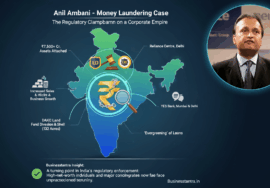5 things I wish someone had told me before I quit my job to start a business
[ad_1]
- Rahkim Sabree is a financial-coaching consultant, business owner, and author.
- He says there are several things he wish he knew before
quitting his job to be a financial coach.
When I left my job in May, I was determined to hit the ground running as an entrepreneur and launch my financial coaching business. I expected there would be challenges and obstacles, but at the time I didn’t really know what to expect.
Looking back, if I were to make the decision over again, I absolutely would still quit my job, with the caveat that I’d need to know more about what I was getting into.
Here are five things I wish someone told me about starting a business before leaving my job.
1. Your newfound freedom can be a blessing or a curse
As an employee, there’s usually an automatic emphasis on time management. You clock in, organize your to-dos, prioritize tasks, and clock out to enjoy your evening.
As a solo-entrepreneur, it’s easy to get lost as your personal life and business intersect and operate on a shared timeline.
The first workday after leaving my job, I woke up and realized that I could get started and stop whenever I wanted. I enjoyed this freedom, but the lack of accountability also meant I could easily get lost in insignificant tasks or justify not doing any task at all.
For me, it helped to shift from digital planning via calendar apps that I could ignore to being intentional about planning my day with a physical planner and reserving time blocks for specific tasks.
2. Your mental health may be challenged
Leaving your 9-to-5 doesn’t automatically mean that your work-life balance and mental health will improve. As an entrepreneur, you have to weather the floods and droughts that come with starting a business. Launching my coaching services from scratch has led to good and bad months, both in terms of finances and mental health.
Leaving the structured security of an established organization can bring about imposter syndrome, anxiety, and loneliness, as well as time periods with no income. It can be difficult to maintain a positive outlook during those times, so finding ways to see the big picture and remember why you started is key.
For me, that means taking time to exercise, journaling, scheduling no screen time, and spending time talking to my support system of friends and family.
3. You’re on your own for medical expenses
It’s easy to take for granted the benefit of having health insurance and dental coverage through your employer. Since leaving my job, I’ve had to find independent coverage, which has been more costly.
If you’re considering leaving your job to pursue
4. Not every ‘necessary’ expense is really necessary
As a new entrepreneur, you become a niche target for agencies and consultants who work with people “like you.” I’ve lost count of the number of service providers who’ve reached out to me with some game-changing product or service they claim will help my business make more money.
There’s always the temptation to buy things “for your business” via technology upgrades, subscription services, and outsourcing to agencies that you could otherwise do without. Remember, not every potentially beneficial expense is a necessary expense right now. There’s a thin line between investing in your business and overspending on something your business doesn’t really need. Start with what you have.
5. Don’t overlook an emergency fund
One of the things I did do right before leaving my job was make sure I had money tucked away in the event of an emergency.
The amount you need in an emergency fund may vary, but it’s typically recommended to have about six months’ of living expenses. Having access to that reserve of money has been crucial to my survival and flexibility as an entrepreneur and my ability to take risks to make my business work.
Rahkim Sabree is an author, speaker, and financial coach who focuses on helping entrepreneurs and business leaders optimize their financial future.
[ad_2]
Source link










